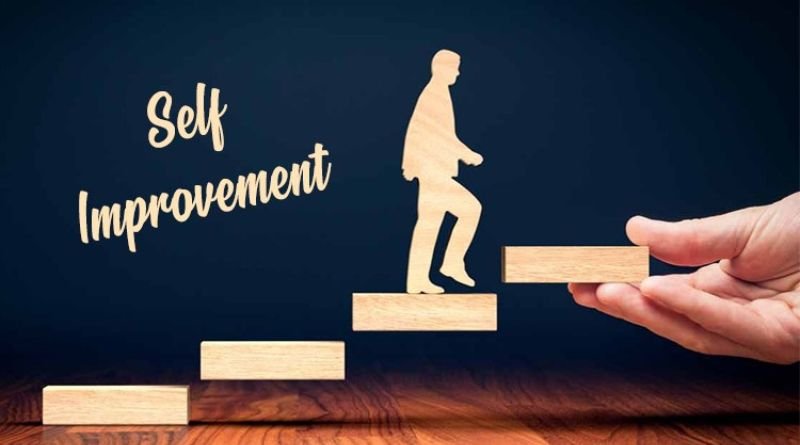Self-improvement is a journey of continuous growth, learning, and transformation. It’s about striving to become the best version of ourselves, not just in professional spheres but in personal life as well. The art of self-improvement involves various strategies and practices aimed at enhancing one’s skills, mindset, and overall well-being. This comprehensive guide will delve into key aspects of personal development, providing actionable insights and addressing common questions to help you on your journey.
Understanding Self-Improvement
Self-improvement, or personal development, encompasses a broad range of activities and disciplines designed to foster growth and enhance one’s life. This might include developing new skills, cultivating positive habits, improving mental and emotional health, and setting and achieving personal goals. It’s an ongoing process that requires introspection, dedication, and a willingness to embrace change.
Key Areas of Self-Improvement
- Self-Awareness: The foundation of self-improvement is understanding who you are, your strengths, weaknesses, values, and goals. Self-awareness helps you recognize areas where you need growth and allows you to set realistic and meaningful goals.
- Goal Setting: Effective goal setting is crucial for personal development. Goals should be SMART—Specific, Measurable, Achievable, Relevant, and Time-bound. This clarity ensures that you stay focused and motivated, tracking your progress and making adjustments as needed.
- Time Management: Managing your time efficiently is vital for achieving personal and professional goals. Techniques such as the Pomodoro Technique, time blocking, and prioritization can help you make the most of your day and reduce procrastination.
- Emotional Intelligence: Developing emotional intelligence involves recognizing and managing your own emotions and understanding and influencing the emotions of others. It enhances communication, empathy, and relationships, contributing significantly to personal and professional success.
- Continuous Learning: Personal growth is facilitated by a commitment to lifelong learning. This might involve formal education, reading, attending workshops, or acquiring new skills. Embrace curiosity and remain open to new ideas and experiences.
- Health and Wellness: Physical and mental health are integral to self-improvement. Regular exercise, a balanced diet, adequate sleep, and stress management practices contribute to overall well-being and enhance your ability to pursue personal goals.
- Building Resilience: Life is filled with challenges and setbacks. Building resilience involves developing coping strategies and maintaining a positive mindset in the face of adversity. Resilience helps you bounce back from failures and keep moving forward.
Strategies for Effective Self-Improvement
- Create a Personal Development Plan: Outline your goals, strategies, and timelines. Include short-term and long-term objectives, and regularly review and adjust your plan based on your progress and changing circumstances.
- Seek Feedback: Constructive feedback from others can provide valuable insights into areas for improvement. Be open to feedback and use it as a tool for growth, rather than viewing it as criticism.
- Adopt a Growth Mindset: Embrace challenges and view failures as opportunities for learning and growth. A growth mindset fosters resilience and a willingness to persist through difficulties.
- Establish Healthy Habits: Identify habits that support your goals and well-being, such as daily exercise, meditation, or reading. Consistency in these habits creates a solid foundation for personal development.
- Surround Yourself with Positive Influences: The people you associate with can significantly impact your growth. Surround yourself with supportive, like-minded individuals who encourage your personal and professional development.
- Practice Self-Reflection: Regularly reflect on your experiences, achievements, and areas for improvement. Journaling, meditation, or simply taking time to think about your progress can help you stay aligned with your goals.
- Stay Motivated: Find sources of motivation that resonate with you, whether it’s inspirational quotes, role models, or personal rewards. Keep reminding yourself of the reasons behind your goals and celebrate your milestones along the way.
Common FAQs About Self-Improvement
1. How do I start my journey of self-improvement?
Start by assessing your current situation and identifying areas where you want to grow. Set specific goals, create a plan, and take small, manageable steps toward achieving them. Reflect regularly on your progress and adjust your strategies as needed.
2. How can I stay motivated throughout the self-improvement process?
Staying motivated can be challenging. Set clear, achievable goals and celebrate small victories. Find inspiration through books, mentors, or supportive communities. Regularly remind yourself of the reasons behind your goals and maintain a positive mindset.
3. What if I encounter setbacks during my self-improvement journey?
Setbacks are a natural part of growth. When faced with challenges, reassess your strategies, learn from the experience, and continue moving forward. Building resilience and maintaining a growth mindset will help you overcome obstacles and stay on track.
4. How can I balance personal development with daily responsibilities?
Effective time management is key. Prioritize your tasks and create a schedule that allows for both personal development and daily responsibilities. Break down your goals into manageable steps and integrate self-improvement activities into your routine.
5. Are there any specific resources for self-improvement that you recommend?
There are many resources available, including books, online courses, podcasts, and workshops. Some popular books on personal development include “Atomic Habits” by James Clear, “The 7 Habits of Highly Effective People” by Stephen R. Covey, and “Mindset: The New Psychology of Success” by Carol S. Dweck.
Conclusion
The art of self-improvement is a dynamic and lifelong journey. By focusing on self-awareness, goal setting, emotional intelligence, and continuous learning, you can make meaningful strides toward personal growth. Embrace the process with patience and persistence, and remember that every step you take contributes to becoming the best version of yourself. Whether through developing new skills, building resilience, or fostering positive habits, self-improvement is about enhancing your life and achieving your fullest potential.



